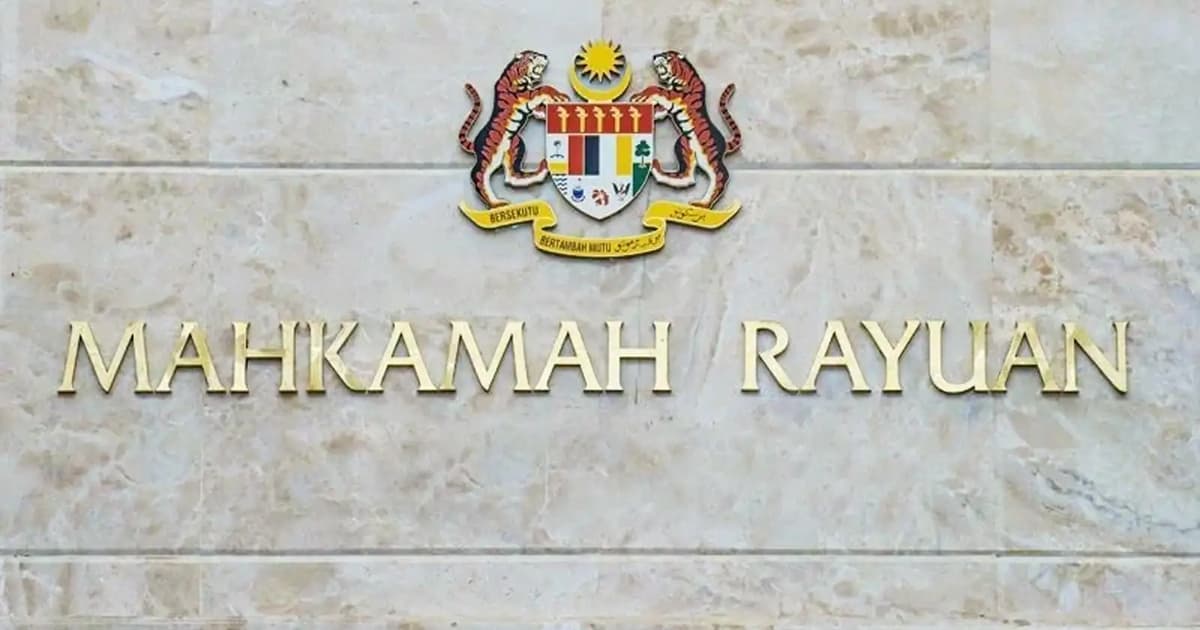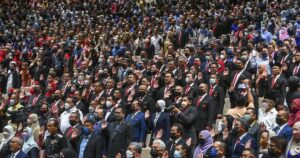
The Court of Appeal has declared the will of a successful businessman with substantial properties invalid, citing a lack of testamentary capacity and a series of troubling circumstances surrounding its execution.
Kong Siew Tong, 99, who died in 2017, was also found to have been subject to undue influence, manipulation, control and domination by three individuals, including his daughter — his primary caregiver.
Justice Wong Kian Kheong, delivering a unanimous decision, said the court had serious doubts about the authenticity and voluntariness of the will. As a result, one adult child from each of the deceased’s two wives was appointed co-administrator of the estate.
“The co-administrators are to distribute the estate of the deceased in accordance with the Distribution Act 1958,” he said when setting aside a High Court ruling that the will was valid and enforceable.
The appellants were also awarded RM180,000 in costs.
Justice Supang Lian chaired the three-member bench, which also comprised Justice Azimah Omar.
The deceased, who had 13 children, owned substantial properties but was illiterate. He depended on others to explain and translate the contents of documents to him.
Kong had been wheelchair-bound since 2009 and was taken care of by his daughter at his home in Dengkil, Selangor.
The appeal was brought by seven of his children, aged between 77 and 63, who wanted the will declared invalid. Three others, the respondents, aged between 78 and 76, wanted to probate the will.
In a 95-page written judgment, Wong said a senior lawyer — a nephew of the deceased — had testified during cross-examination that the deceased was “quite forgetful”. The lawyer said he had to repeat his questions to the deceased when they allegedly met.
The judge said given there was a real doubt of the deceased’s testamentary capacity, the golden rule established in Simpson’s case (1977) should have been followed — an attesting doctor should have been present to examine the testator before the will was drawn up.
“The will (signed by a person advanced in age) should have been witnessed and approved by a medical practitioner who satisfies himself/herself as to the deceased’s testamentary capacity,” he said.
Further, Wong said the appeal was allowed as the testimony of the two attesting witnesses — the lawyer and his clerk — could not prove the deceased’s testamentary capacity.
The judge also said the lawyer’s evidence at the trial lacked credibility.
Wong said Dr Lim Tye Leng, a consultant physician at a private hospital, the deceased’s personal doctor for 17 years until 2013, had testified that the deceased had suffered a fall in 2012 and could not remember what had happened to him.
The judge noted that without informing the appellants, the respondents stopped that consultation and brought the deceased to consult Dr Lim Chin Seng, a consultant physician and nephrologist at another private hospital on 11 occasions between 2016 and 2017.
Wong said Tye Leng was an independent professional medical specialist who has no financial interest in the outcome of this case. On the other hand, the court noted that the respondents did not call Chin Seng to give expert evidence on the deceased’s testamentary capacity.
As a result, the court applied Section 114(g) Evidence Act 1950 and drew an adverse inference against the respondents for suppressing Chin Seng’s evidence, which it considered material to the case.
Wong also found that the will had been kept in a safe box by his daughter, the second respondent.
“The second respondent erected a grill gate on the door of the room (which contained the safe boxes),” he said. As a result, only she had access to the will, he added.
Wong said in December, 2015, the deceased suffered serious injuries from a fall and was admitted to hospital.
He said that, without consulting the appellants, the deceased was later removed from his residence in Dengkil and placed in the third respondent’s home in Bukit Mewah, Kajang.
“(The appellants) were not allowed by the respondents to meet the deceased,” he said, adding that the third respondent even instructed the security personnel at the guard post to bar them from entry.
Wong also noted that the deceased was not given a copy of the signed will.
“The conduct of the daughter also ensured that the deceased’s right to revoke or codicil the will could not be exercised as it was kept in the safe box with one of the respondents holding the key,” he said.
The respondents are appealing the ruling to the Federal Court.






